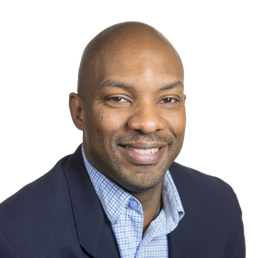Pistons' Dwane Casey hopes for 'positive change' following tragic events
 Rod Beard
Rod BeardIn light of the growing national unrest in the aftermath of the death of George Floyd in Minneapolis and several other deaths involving police interactions with black citizens, Pistons coach Dwane Casey is shining a light on his experience both as a young boy growing up in Kentucky and as a father of an 8-year-old son.
Casey released a statement on Saturday highlighting some of his experiences, but he expanded on his thoughts Monday on several platforms, hoping to give more voice to the peaceful protesters around the country.

Casey pointed to the deaths of Floyd, as well as the recent fatal incidents involving Ahmaud Arbery in Georgia and Breonna Taylor in Kentucky in recent weeks. With the mounting tensions around racial equality amid the COVID-19 pandemic, Casey found a connection between the issues and pushed for change.
“The light shown in the pandemic and in Minnesota and Georgia and Kentucky amplifies (the issues) even more. With unemployment and the economic situation, it’s a perfect storm,” Casey told The Detroit News on Monday. “Hopefully, positive change can come out of this. We can talk and preach and write statements — but until we change the policies, laws and systems, it’s going to continue over and over. That’s going to take time.
“It’s going to take the majority to put a foot forward and make change. How many years have we been jumping up and down and marching to make change?”
Casey, in his second season as Pistons head coach, also was head coach of the Toronto Raptors for eight seasons and got his first coaching job with the Minnesota Timberwolves in 2005-07. It’s given him perspective on different cities and cultures and how the struggle for racial equality is a constant, regardless of location.
More: Wojo: Sports figures speak the sad truth: We are not united, after all
Metro Detroit has a different dynamic than most American cities, because of its segregation, but also because of the racial makeup in the surrounding areas.
“The (racial) issue here is not just black and white — it’s Chaldean, it’s the Muslim religion and other races and it’s totally different than a lot of other cities,” Casey told The Detroit News. “They’re persecuted as much as anyone else. One of the positives to come out of this is fact we’re seeing differences (in how people of color are treated).”
Casey discussed how interactions with the police have impacted him and his family, including discussions with his preteen son and daughter.
“With them, I keep it simple; I don’t want it to be totally heavy,” Casey told The News. “I can talk to (my daughter) more seriously about me growing up in Kentucky and not being able to go to restaurants and having to go to the back door to get service.
“I can tell her how things are different now and talk about being an African-American girl. All those things are pertinent to her age and I try to keep it in that aspect.”
Earlier Monday, Casey appeared on “Lunch Talk Live” with Mike Tirico on NBC Sports Network and added his concern for his players and how they handle themselves in police interactions.
It’s an all-too-familiar theme, bringing to mind an incident involving Milwaukee Bucks guard Sterling Brown a couple years ago.
“With players, you talk about being smart if you get pulled over and making sure you’re respectful, because once you get pulled over in a police situation, you’re not in control; they’re in control,” Casey told Tirico. “Accept that and be respectful. Ask questions but be respectful because you don’t know if you’re getting a bad policeman in that situation.”
Beyond pointing out the issues, Casey also talked to Tirico about an action plan that he hopes will start breaking down some of the barriers between young black children and the police, to promote understanding and highlight their commonalities through sports.
“I reached out to the chief of police in Detroit and talked to him about combining the Detroit Police Athletic League and the Pistons Academy, which is run by our organization, with policemen and with kids in the community and try to get that going again,” Casey told Tirico. “Let’s get it going again to build that bond and relationship of understanding and most of all, the communication for young kids.
"One thing that will help in all departments is getting with the police in their training phase; let’s not wait until they’ve been in the department 10-15 years, to understand who people are, as they’re going through the technique and policy part of the training.
“That way, we can help those relations going down the road.”